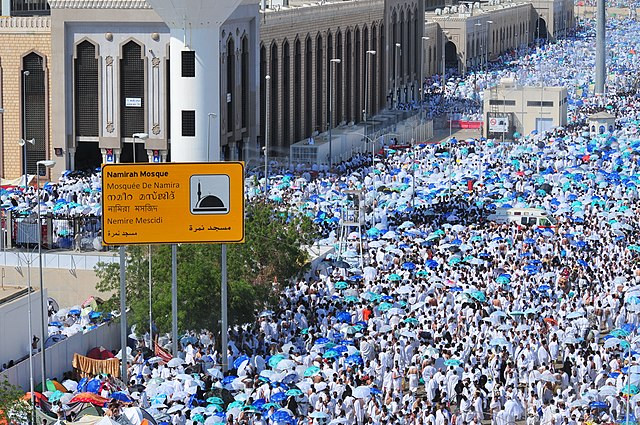The 2024 Hajj pilgrimage has been marked by an unprecedented tragedy as more than 1,000 Muslim pilgrims succumbed to extreme heat in Saudi Arabia, according to various reports. This year's pilgrimage, occurring during one of the hottest periods in the Islamic calendar, has seen temperatures soar to an unbearable 125 degrees Fahrenheit (49 degrees Celsius).
The Hajj, a religious duty every Muslim must undertake once in their lifetime if physically and financially able, drew more than 1.83 million pilgrims this year. However, the severe heat and lack of adequate health measures have overshadowed the event, leading to a grim toll. According to AFP, the deaths were recorded from ten different countries, with a significant number of fatalities reported among Egyptian pilgrims.
An Arab diplomat, speaking to AFP, indicated that the primary cause of death for many Egyptians was the heat, which often resulted in complications such as high blood pressure. The diplomat noted, "Heat exhaustion led to many fatalities, particularly among the elderly and those with pre-existing conditions."
The pilgrimage is a rigorous journey that involves numerous rituals, including the stoning of the devil and the gathering at Mount Arafat, where the Prophet Mohammed is believed to have delivered his last sermon. Unfortunately, these rituals were marred by the extreme weather, with one Indian pilgrim, Khalid Bashir Bazaz, recounting, "I saw a lot of people collapsing to the ground unconscious."
Despite the Saudi Ministry of Health's implementation of safety measures, including cooling stations and advisories to stay hydrated, the efforts proved insufficient. On Sunday alone, the ministry reported treating over 2,700 cases of heat exhaustion. The high temperatures prompted officials to advise against performing certain rituals during peak hours to mitigate the risk.
The impact of the heat was further exacerbated for unregistered pilgrims, who, due to their unofficial status, lacked access to air-conditioned facilities provided for the registered participants. This disparity was highlighted by the high number of unregistered Egyptians who perished; out of the 658 Egyptian fatalities, 630 were unregistered, according to AFP.
Countries participating in the Hajj have reported their own tallies of deceased pilgrims. The Egyptian presidency announced a crisis unit, led by Prime Minister Mostafa Madbouly, to support the families of the deceased and facilitate the repatriation of bodies. Meanwhile, Malaysia's Minister for Religious Affairs, Dr. Mohd Na'im Mokhtar, reported deaths due to heart disease, pneumonia, and blood infection among Malaysian pilgrims.
India, which lost 98 nationals, attributed the deaths to natural illnesses, chronic conditions, and old age. The Indian Ministry of External Affairs confirmed that extreme heat claimed several lives during the pivotal gathering at Mount Arafat.
This year's Hajj has not only highlighted the physical dangers but also the logistical and administrative challenges faced by the host country. The Saudi government has been criticized for not doing enough to protect pilgrims from the extreme conditions. The tragedy raises questions about the adequacy of the current infrastructure and the preparedness for such emergencies.
The Hajj, beyond its spiritual significance, is also a vital economic event for Saudi Arabia. The pilgrimage is a major source of revenue and a symbol of prestige for the kingdom, which has invested billions in expanding the Grand Mosque in Mecca to accommodate more worshippers. The government's Vision 2030 plan aims to increase the number of pilgrims to 30 million annually, underscoring the economic stakes.
However, this year's events have cast a shadow over these ambitions. The tragedy underscores the need for better preparation and infrastructure to ensure the safety of the millions who journey to Mecca each year. As the Saudi authorities continue to tally the final numbers and support the affected families, the global Muslim community mourns a somber Hajj season marked by profound loss.
The Hajj's future, while still a critical pillar of Islam, may require significant reforms and enhancements to protect pilgrims in an increasingly unpredictable climate. The balance between accommodating growing numbers of worshippers and ensuring their safety will be a crucial challenge for Saudi Arabia moving forward.






